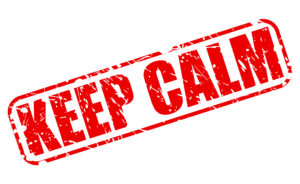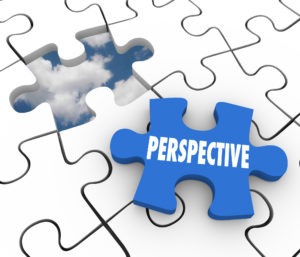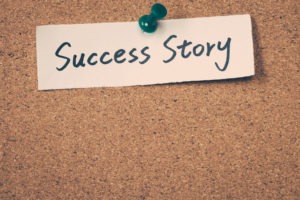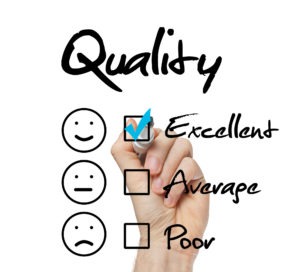Being terminated from your job regardless of the reason can feel devastating, embarrassing, and downright scary. I can assure you there IS life after losing a job or being fired, so if this has happened to you or you’re worried it might, then read this article. In 6 steps, I’m going to take you through what you need to do (and don’t do) when you’re fired, how to learn from it, and overcome it to positively move forward.
Being fired from your job can be a huge hit to your self-esteem, crush your confidence and leave you feeling anxious about how to move forward. To help you handle this situation correctly, here are the 6 steps to take when you are initially fired:
Step 1: Stay Calm and Don’t Bad-Mouth Your Employer
Nowadays with social media, it can be tempting or even a habit to share opinions, emotions, and life happenings (good and bad) with the world or personal and online social networks.
If you have recently been fired, laid off or terminated regardless of the reason, then I first want to caution you against bad-mouthing your former employer publicly. It is completely natural to feel angry, hurt, shocked, resentful, embarrassed, sad, ashamed, worthless, fearful, and absolutely devastated – there are a myriad of emotions and you will likely experience some or all of them to some degree or another. I suggest you vent with a family member, a trusted friend, a counselor, or a career coach about what happened and how you feel.
 Just because you were let go from your job doesn’t mean you are automatically leaving on bad terms. So, try not to burn your bridges by getting overly emotional and yelling at your employer. Most employers will expect you to be upset but maintain your dignity and self-respect by maintaining your calm and rationale. If you break down and cry – hey you’re human it’s okay…. but try to refrain from getting angry or defensive. Your employer may have been forced to terminate you for a reason beyond their control, it may not be personal but a matter of policy, direction from their superior, or a number of other reasons.
Just because you were let go from your job doesn’t mean you are automatically leaving on bad terms. So, try not to burn your bridges by getting overly emotional and yelling at your employer. Most employers will expect you to be upset but maintain your dignity and self-respect by maintaining your calm and rationale. If you break down and cry – hey you’re human it’s okay…. but try to refrain from getting angry or defensive. Your employer may have been forced to terminate you for a reason beyond their control, it may not be personal but a matter of policy, direction from their superior, or a number of other reasons.
If you feel you have been very wrongly treated or that your employer has broken the law (and this does happen occasionally!), then I suggest you consult an employment lawyer to see if you have a case for wrongful dismissal.
Step 2: Take Some Time to Grieve
You need to allow yourself some time to process what has happened to you, run through a gamut of emotions, and decompress from your routine of going to your job every day. Don’t just sit and wallow; if you need a couple of days to hide in your cave and lick your wounds that’s totally okay but commit to yourself that by day 3 you will leave your cave. Do some fun things with family or friends or get active and do your favorite hobby or sport – you need to get those positive endorphins going in your brain so do something fun and positive. You want to avoid falling into a depression.
If you are a highly social/group activity person then go do a fun activity with friends – go on a group hike, go skiing, go tour some museums or throw a team together and go play football or slow pitch. If you are more of a lone wolf – go do something that you enjoy where you recharge your batteries – go kayaking, go on a hike, go feed the ducks at a local park, visit an arcade and blow $20 worth of quarters on pinballs and video games.
If you have a tendency to deal with stress through alcohol, gambling, or drugs, then I really want to encourage you to avoid those types of activities, while they might give you an initial high you know in the long run they will have a negative impact on you. I know you might think I am starting to sound like your mother, but as your Career Coach part of my job is to guide you to make good decisions that have a positive impact on your future, your career, and your job search so I feel obliged to state the obvious but please know it comes from a place of genuine care.
Step 3: Put Things in Perspective
Did you know the average person holds 12 to 15 different jobs in their lifetime? Remind yourself this is just one job in the big picture of life, there will be others in your future. Getting fired can be scary – it disrupts your life, your finances, it can add stress at a time when you may already be dealing with stressors that may have contributed to why you were actually fired in the first place. It can be traumatic, but it can also turn out to be one of the best things that may have happened to you. 
Many of us define ourselves by our career or job – let’s face it if we work full-time, we spend more time in our job than sleeping or spending time with our family or any other activity so it’s only natural to feel that we are what we do. So, it’s easy to see how being fired can have such a devastating impact on our self-worth, and how we see ourselves BUT being fired doesn’t define you. Being fired can lead to bigger and better opportunities you may not have otherwise been open to or aware of.
Step 4: Self-Assess to Determine What Went Wrong
Whether you were fired for just cause or not, it is good to have a clear understanding of where things went wrong. If you were fired for a performance issue, reflect, and ask yourself some hard questions… this is not about blame and not about making you feel bad – this is about figuring out what the cause was. Perhaps you aren’t cut out for that type of work capability-wise or were promoted to a position that was above your skillset. If you love that type of work then maybe you need to pursue more training. Maybe you just don’t have the personality for the job.
Ask yourself things like:
- Did my attitude change?
- Did I stop caring?
- Was my heart not in it?
- Did I not like the job/duties/responsibilities?
- Did I not like my team/manager/co-worker, was I resenting something or someone I worked with? And why?
- Sometimes a person’s attitude changes because of a stressor in our work or personal lives, or maybe you were in a situation you just weren’t well suited for –
- Were the requirements of the job above my skills and abilities?
- Should I obtain further training/education for this?
- What would I do differently if in this position again?
I’d like to share a story about a past client of mine who came to me after being fired for the 2nd time in a row from a management role.
To protect his privacy, we will call him Tim.
Tim told me why he thought he was fired and what reason his employer gave him (which wasn’t much).
As his Career Coach, I was able to ask Tim’s former employer directly for feedback in order to provide him with more helpful guidance. He also provided me with copies of his previous performance reviews which provided some great insight. What I learned from the employer, the reviews, and from Tim (in his late 30’s) was enlightening.
He had been hired externally into a management position with a team of approximately 12 women reporting to him, all of whom had been with the company for more than 25 years (putting most of them in their mid 50’s). Tim tried to implement some new and innovative ideas into the department but unfortunately, he was met with resistance by most of his seasoned team who were not open to his proposed changes. There were some personality conflicts, particularly from one employee who applied for his role and was denied it (resentment anyone?), and because his team of 12 had worked together for more than 2 decades they banded together against him as the new manager. Tim could’ve possibly approached things differently to implement change, however, based on my impression I don’t think he stood a chance regardless. What was interesting was, ironically Tim was put in a very similar situation in his previous job that he was also fired from for basically the same reason.
Tim had completely lost his confidence in managing people after this….so together we determined some alternative career paths he could pursue where Tim could utilize his degree, his skills, and experience and yet find something where he would feel fulfilled, confident, and be able to contribute. I re-targeted his resume, taught him how to approach potential new employers and how to answer the questions around why he was fired from his last 2 roles.

Within 4 months he attended several interviews, was short-listed to the final 2 candidates four times, received 2 job offers, and accepted the one he wanted most. Tim accepted a business development role where he no longer supervises people, he gets to utilize his Business Economics degree and he no longer has to commute 1.5 hours to his job which made his wife and kids happy. I checked in with Tim about 6 months into his new career and he was loving it, he was making more money than in his past role and he had a better work-life balance for his family. So, what was at one time a traumatic experience for this man in being fired, turned out to be one of the best things that could have happened to him.
Step 5: Get Feedback from Others
By reflecting, assessing, and trying to gather honest feedback from your former employer, coworkers, reporting staff, and maybe even some customers/clients you worked closely with, you may discover that you have areas you can improve on….Whether it be your style of approach in dealing with others, your attitude, or perhaps you’re lacking in a particular skill that you can improve on with further training. What you may also discover is that you just aren’t in a line of work that suits your natural aptitudes, interests, skills, or personality so now might be the time to explore alternatives and figure out what your dream job is.
If you decide to ask others for feedback…. you need to be open and listen. Don’t get defensive, argue, contradict, or start blaming someone else…. just listen and take notes! This is about gathering helpful information, not defending what you think or what you did/didn’t do. If you start defending, blaming, or arguing, the person will shut down and you will lose out on the chance to learn what you probably need to know. Thank each person for their honesty and feedback and don’t hold it against them if they told you something you didn’t want to hear. Once you have gathered feedback from several sources, look for any themes or similarities in what they’ve told you. Acknowledge it and research ways to either work on improving these weaknesses or find ways to avoid those scenarios.
Step 6: Make an Action Plan
Now that you have taken some time to grieve, process, obtain feedback and determine what went wrong. Now it is time to make a plan to start moving forward. I recommend making an action plan for yourself…this will help you set goals, objectives and things you need to do to start moving forward in a positive direction to find your new and fulfilling job or career.
What you’ve learned here is just the tip of the iceberg when it comes to interview strategies and tips. To learn more, check out my YouTube channel (VirtualJobSearchCoach), where I post new content to help job seekers like you, determine, pursue, and land their dream job!
If you would like one-to-one coaching to equip you with the confidence, necessary tools, critical knowledge, and strategies to find and land your ideal job – then let’s talk! You can book a complimentary 15 minute discover call directly in my calendar at https://calendly.com/virtualstacey and let’s chat about how I can help you fast-track your job search success.


